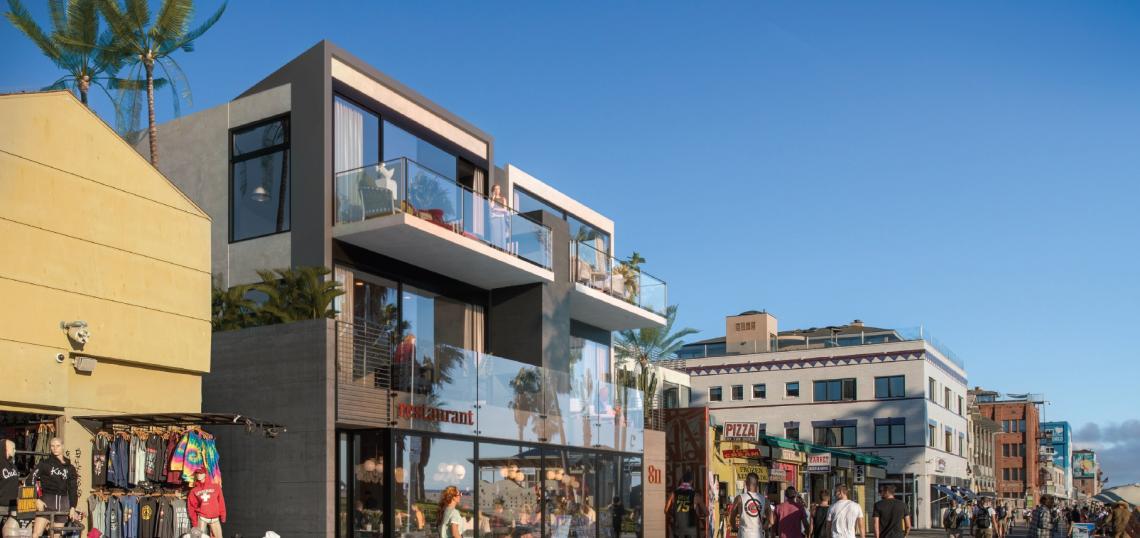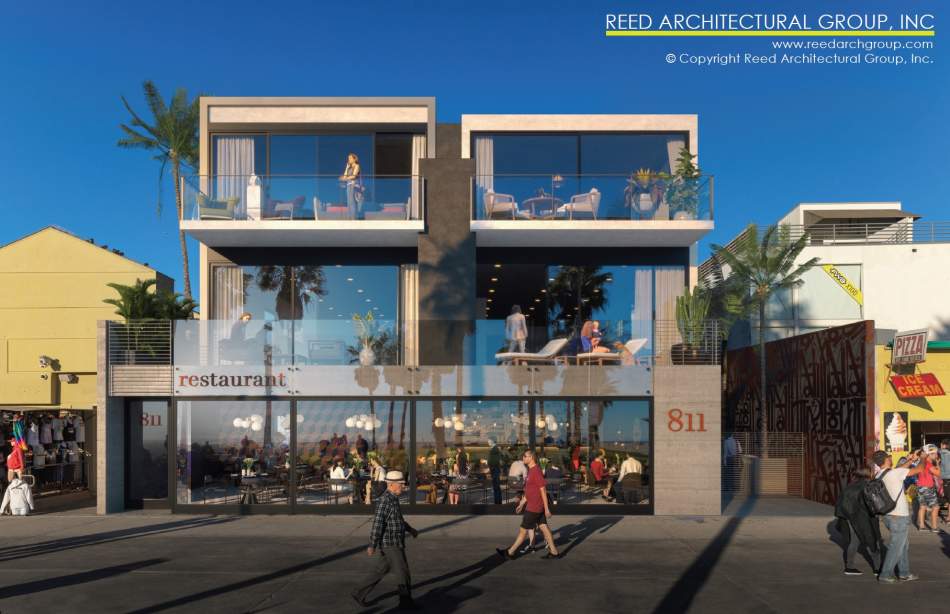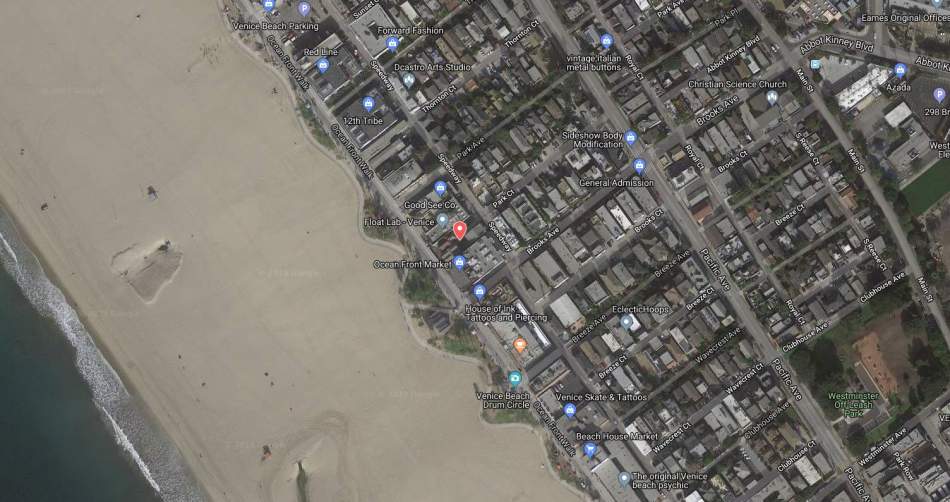In a unanimous vote, the Los Angeles City Planning Commission moved earlier today to approve the construction of a small mixed-use building on the Venice Boardwalk.
The proposed development - which comes from Venice-based GVS Properties - calls for demolishing three empty buildings at 811-815 Ocean Front Walk, making way for a new three-story edifice containing nine apartments above 1,568 square feet of ground-floor restaurant space and a semi-subterranean parking garage for 30 vehicles.
Reed Architectural Group is designing the contemporary low-rise building, which would consist entirely of studio apartments centered on a small courtyard. Proposed exterior finishes include aluminum, painted stucco, and concrete.
Plans for the Ocean Front Walk property - which has been unoccupied for more than a decade - date to 2014, when GVS previously sought to construct a smaller development featuring just two residential units and ground-floor commercial space. While the developer secured approvals for that project in 2017, entitlements were later overturned by the West Los Angeles Area Planning Commission, in part because the proposal would have resulted in a net loss of housing from the existing nine apartments.
The revised project, which employs density bonus incentives, replaces all of the existing on-site dwellings, while also setting aside one apartment as deed-restricted low-income housing.
Although the project was not faced with a formal appeal, several callers who identified themselves as residents of the Venice community spoke in opposition to the proposed mixed-use building, arguing that the development violates the Mello Act - state legislation adopted in the 1980s which mandates the preservation or replacement of existing affordable housing in coastal areas.
Margaret Molloy, an appellant of the earlier project which was denied by the Area Planning Commission, accused the Sutter family - which owns the property - of creating blight by leaving the existing buildings vacant.
However, John Reed, an architect working on the project, described the existing buildings as fire hazards without historic value. However, the buildings cannot be demolished without the approval of a coastal development permit.
Representatives of the Venice Neighborhood Council and Venice Chamber of Commerce both spoke in favor of the proposed development.
City officials, in recommending approval of the housing project, determined that none of the existing vacant homes on the property are legally designated affordable housing, and thus found that the project was not in violation of the Mello Act.
Commissioners, citing the support of the neighborhood council, were complementary of the design concept and programming, and voted to approve the project after a brief period of deliberation.
Despite the objections of some residents, there is precedent for new housing construction on the Venice Boardwalk. A similar project which recently made its debut less than a half-mile north at 305 Ocean Front Walk consists of three apartments and ground-floor commercial space.
- Venice (Urbanize LA)










